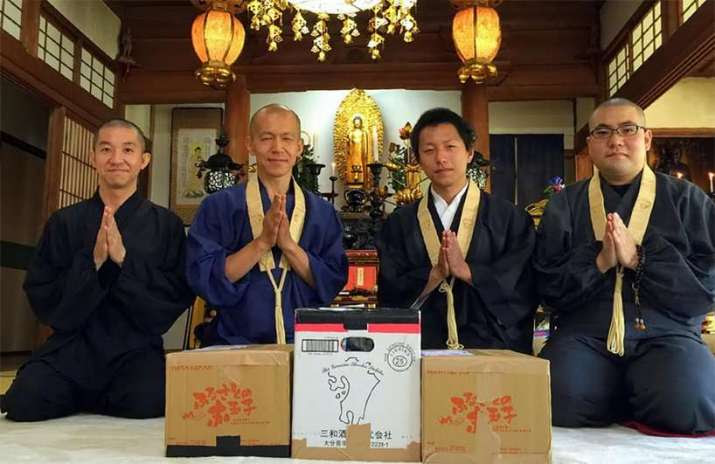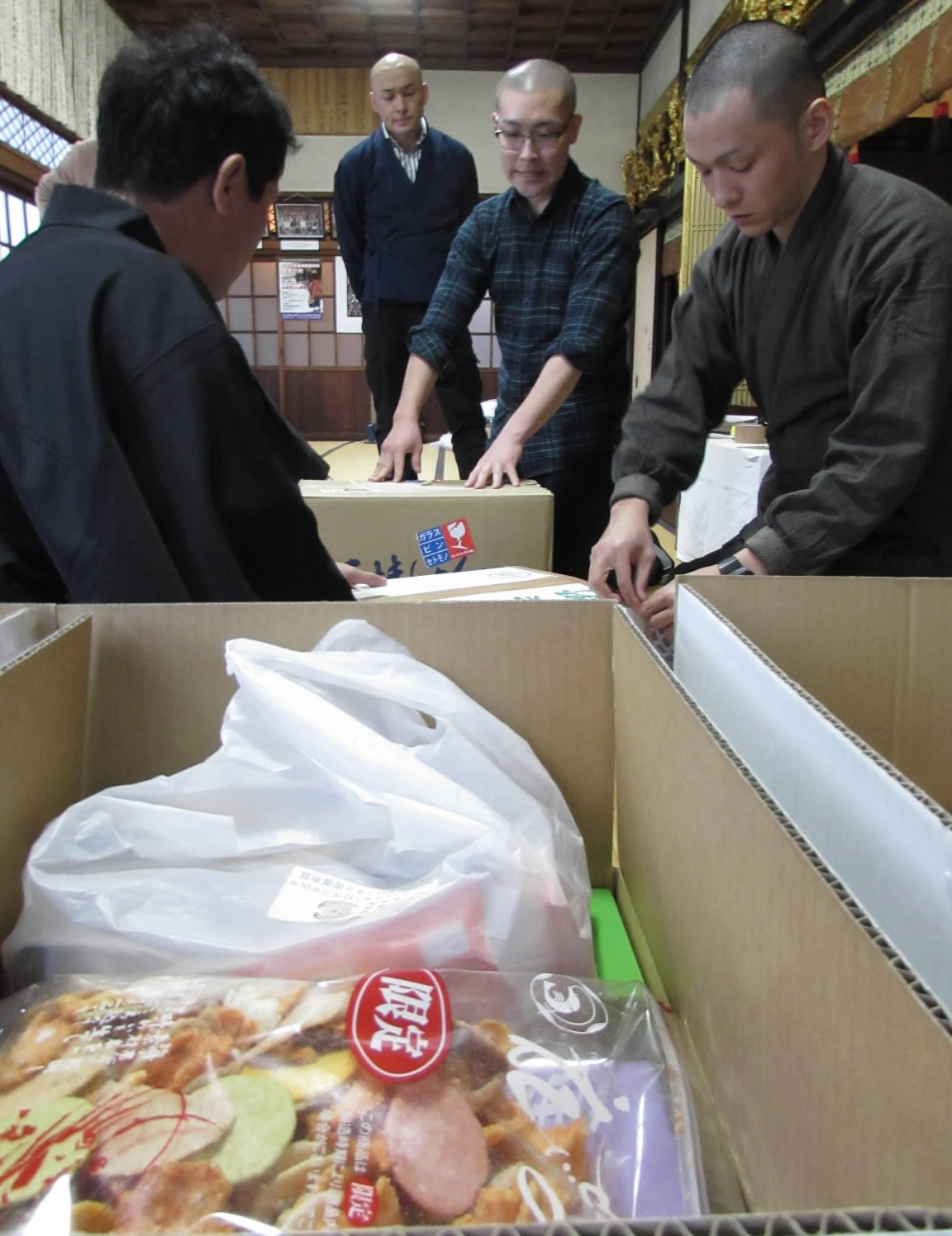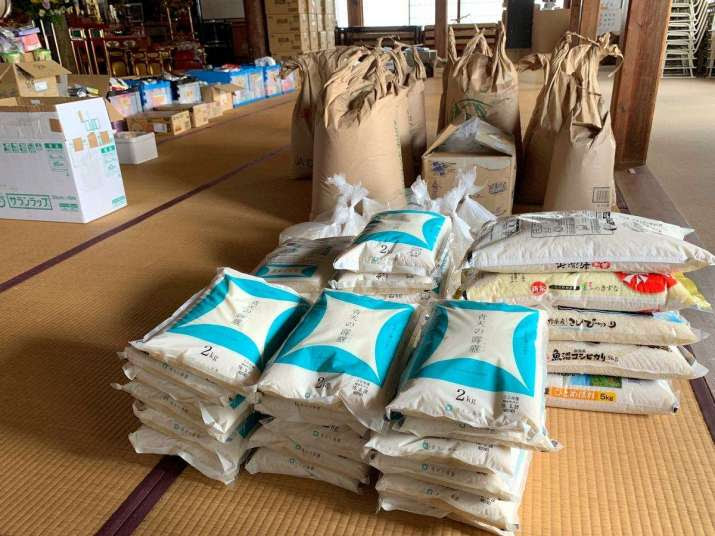
By Shyamal Sinha

Todaiji is an ancient temple complex in Nara, Japan. Founded in 738 CE and officially opened in 752 CE when Nara was the capital, the temple is the headquarters of the Buddhist Kegon sect. The temple has a 500-ton sculpture of the Buddha, best known in Japan as the Nara Daibutsu, which is the largest bronze statue in the world, housed in the largest wooden building in the world. Todaiji is also home to thousands of precious art objects and a UNESCO World Heritage Site.
Buddhist monks at Todai-ji, an eighth century Buddhist temple in the Japanese city of Nara, have joined a growing nationwide initiative to share devotional offerings donated by worshippers with single mothers and other financially struggling families.
The socially engaged move is part of a broader anti-poverty initiative organized by a non-profit group known as the Otera Oyatsu Club (Temple Snack Club), which was established to redistribute food offerings received by temples to single-parent households.
The Otera Oyatsu Club has placed collection boxes in Todai-ji’s main hall to collect donation from the crowds of visitors to the temple and to raise awareness about the hidden issue of poverty in Japan. Signs in Chinese, English, and Korean explain the initiative for the numerous foreign tourists who visit the temple. Funds collected help to cover the costs of transporting devotional offerings given by worshippers to disadvantaged families.
Todai-ji was one of the powerful Seven Great Temples of the former Japanese capital Nara. Originally founded in 738 CE and opened in 752 CE, the temple is a listed UNESCO World Heritage Site and the Japanese headquarters of the Kegon (Ch: Huayan) school of Buddhism. Its main hall houses the world’s largest bronze statue of Vairocana Buddha.

Headquartered in Tokyo, the Otera Oyatsu Club is a joint project founded in 2014, the founders of which include Shokei Matsumoto, a monk from Komyo-ji, a temple in central Tokyo, who, armed with an MBA degree, is working to transform temple management across Japan and the role of Buddhist temples in Japanese society.**
Another founder of the organization is 43-year-old Seiro Matsushima, chief priest at the Jodo-school temple Anyo-ji in the town of Tawaramoto in Nara Prefecture. Matsushima was stirred into action after hearing the news of how the bodies of a young mother and her three-year-old son were discovered in their Osaka apartment months after they had died in 2013. The only food found in their home was salt, and the authorities attributed the cause of death to starvation or murder-suicide. The mother reportedly left a note, apparently written for her son, that read: “I’m sorry you could not eat your fill.” (The Asahi Shimbun)

disadvantaged families at Kuon-ji, a Buddhist temple in Nagoya.
From japantimes.co.jp
So far, 1,250 temples and 450 other organizations are participating in the collaborative project, according to Otera Oyatsu Club officials, ensuring that offerings reach some 10,000 needy children each month.
“One in seven children in Japan is living in poverty,” The Otera Oyatsu Club explains on its website. “The Otera Oyatsu Club is an initiative connecting temples and support groups nationwide, as well as social leaders and local residents, all of whom work together to seek solutions to poverty through acts of compassion. . . . We connect temples across the entire country who agree with the aim of our activities to support children and single-parent families, delivering snacks, fruits, food, and other daily necessities.”
Through engagement and collaboration with other temples, local community groups, and partner organizations, the scope of the Otera Oyatsu Club has expanded from food offerings to providing social support and well-being services for those in need.

Buddhism and Shinto are the two most widespread religious traditions in Japan, with 79.2 per cent of the population identifying as practicing Shinto and 66.8 per cent identifying as Buddhists, indicating a high level of overlap between the two traditions, although, somewhat paradoxically, a majority of Japanese also identify as atheists for a number of cultural reasons. Christians represent 1.5 per cent of the population, while other religions make up a combined 7.1 per cent, according to data for 2017. The most popular schools of Buddhism are Nichiren, Pure Land, Shingon, and Zen.
source – Buddhistdoor











